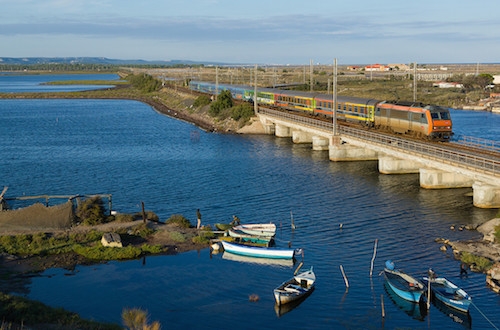The commission, which is chaired by member of parliament for Calvados Mr Philippe Duron, is tasked with developing a strategy for the so-called balance of territory (TET) trains, a network of 40 loss-making long-distance services which serves 355 towns and cities across 21 regions.
The report argues that TET services need to be completely redefined to meet the needs of modern passengers. Obsolete rolling stock and decaying infrastructure mean punctuality is poor and operating costs are high. Any further increases in costs will make the TET network completely unsustainable, it is suggested.
The commission has therefore committed itself to carrying out a detailed line-by-line analysis of the TET routes.
The commission reccomends that a TET leadership council should be set up to administer the network and recommends that efforts to enhance services should be focused on those lines with the strongest potential for revenue growth.
Three routes are singled out as underutilised, but with potential for expansion:
- Paris - Clermont-Ferrand
- Paris - Orléans – Tours, and
- Nantes - Lyon
The commission recommends maintaining or increasing service levels on a further seven routes:
- Paris - Limoges
- Paris - Caen
- Bordeaux - Marseilles
- Paris - Amiens
- Paris - Bourges
- Paris - Saint-Quentin, and
- Bordeaux - Nantes
On routes with lower traffic, the commission recommends reviewing operations and adjusting service levels accordingly to reflect to demand. These include:
- Paris - Rouen
- Rouen - Le Havre
- Caen - Cherbourg
- Paris - Granville
- Amiens - Boulogne (part of Paris - Amiens – Boulogne)
- Saint-Quentin - Maubeuge (part of Paris – Maubeuge)
- Limoges - Brive-la-Gaillarde (part of Paris – Limoges), and
- Troyes - Belfort (part of Paris – Belfort)
TET services would be withdrawn on the following lines:
- Toulouse - Cerbère
- Paris - Granville
- Saint-Quentin - Cambrai
- Quimper - Nantes and Bordeaux - Toulouse (from the Quimper – Toulouse service), and
- Marseilles - Nice (from the Bordeaux – Nice service)
Under the proposals three lines including Caen - Le Mans – Tours, Hirson – Metz, and Reims – Dijon would transfer to regional control, becoming TER services, while Toulouse – Hendaye and Clermont-Ferrand – Béziers services would be replaced by buses.
The report suggests that the opening of the market to competition would be a real opportunity to establish a viable business model for the TET network. The commission therefore proposes that the monopoly of SNCF Mobilités should be tentatively lifted on certain routes, although any moves towards competitive tendering will not take place until the end of 2016 at the earliest.
The National Federation of Public Transport Associations (FNAUT) welcomed many of the findings of the report, but argues that the proposals do not go far enough. "The Duron commission wisely rejected the regressive scenario defended by SNCF, which was totally ignores the needs of travellers," the association said in a statement. "The commission accepted that Intercity trains are essential to ensure services to medium-sized cities and on cross-country routes."
However, FNAUT says it is disappointed that the commission has not recommended the reconstruction of a truly national Intercity network, pointing to German Rail's recently-announced strategy to develop its long-distance network in the face of intensifying competition from buses.
Last week the Association of French Regions (ARF) and the Federation of French Towns warned that more than half of TET services could be lost if the French government fails to act decisively to secure their future.

